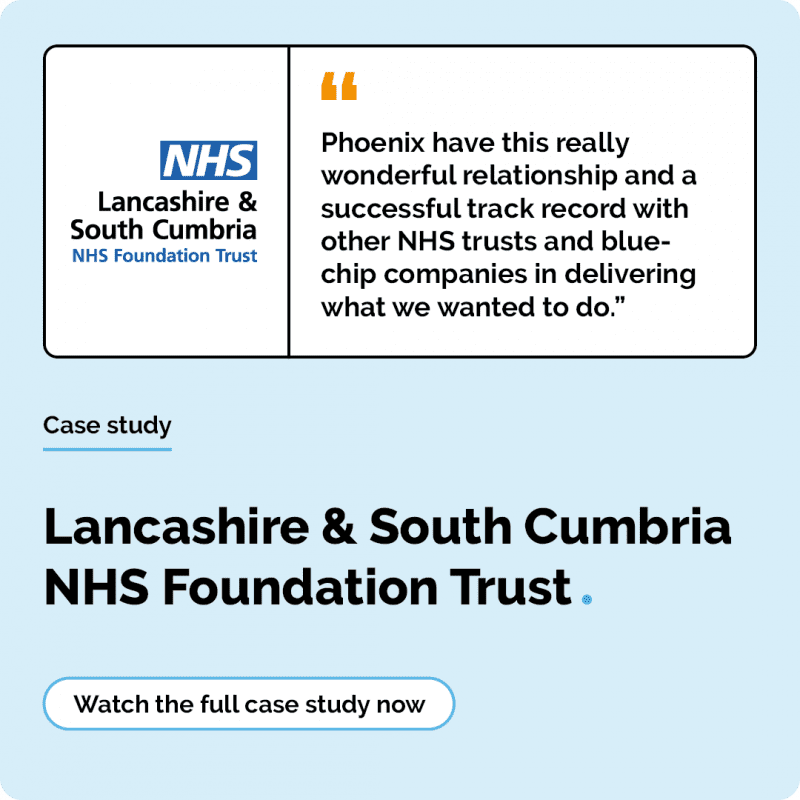Mental Health and How to Spot the Signs
3 minute read
Fiona Bowman
October 21st, 2020
“It is no secret that I have struggled with my mental health over the course of my life. At some of my lowest times, I have relied solely on the people around me (friends, family, colleagues etc.) to give me the option to talk and support me through my mental ill health.
The Mental Health Foundation say that in the past week alone, 1 in 6 people experienced a common mental health problem like anxiety and depression; I cannot imagine what it would be like for those who are suffering and have no one to talk to.
On that note, I wanted to use this blog post to provide some useful tips to those of you who perhaps do not suffer from ill mental health yourself but know someone who does on how you can support them or to prepare you to spot the signs that someone’s mental health may be getting worse.
Here are 14 signs that someone could be experiencing a common mental health problem:
- They have socially withdrawn
- They are going through a difficult life event (redundancy, divorce etc.)
- They are acting out of character (‘snapping’ easily, being more sensitive than usual etc.)
- They’re behaving recklessly
- They talk bleakly about the future
- They have mentioned sleep difficulties (sleeping too much or too little)
- They are emotionally distance and brush things off with short responses
- They break down over ‘little things’
- They appear on edge (eyes darting around, not relaxing etc.)
- They require more downtime and are less outgoing than usual
- They struggle to make eye contact
- They are disengaged in conversation
- They have a noticeable change in appetite (overeating or undereating)
- They are always ‘busy’ or express being overwhelmed by things (work, life, family etc.)
These signs alone may be nothing to be worried about but oftentimes, when a person is showing a variety of these signs at once, it could be a sign that they’re beginning to experience some negative change in their mental health.
I understand it can be very daunting to approach the conversation with someone regarding their mental health, so I have compiled some tips on how to reach out to someone to best allow them to open up:
- Set aside time with no distractions to allow an open and non-judgmental space to talk
- Let them lead the conversation and do not put pressure on them to share too much – remember it will take a lot of courage to open up and you may be the first person they have spoken to regarding their mental health
- Keep your questions open ended like “why don’t you tell me how you are feeling?” and keep your language neutral
- Listen carefully to what they are telling you and repeat their responses back to them to show you have understood. You do not have to agree or disagree with what they are saying but show you understand how they feel
- If you are not a medical expert, do not try and self-diagnose their symptoms or offer medical advice, ask if they want to seek professional support and provide information on ways to do this (going to their GP or counselling services) or sign post them to charities like Mind or Samaritans
- Most importantly, understand your boundaries – ask for help or signpost if the problem is serious. If they are in immediate danger or have injuries that need medical attention, you need to make sure that they are safe. I will provide information for dealing with a crisis below.
Above anything else, remember to be gentle, respectful and kind. It may be very difficult for all parties to open up, but it may ultimately end up saving their life.
Key contacts
Specialist mental health services/GP – you should be able to reach these services through your GP or social services/work team.
- Samaritans – the Samaritans offer emotional support 24/7, call 116 123 or email [email protected].
- MIND Infoline – Mind provide a wealth of information on mental health in your local area, from 9am-6pm, Monday to Friday; call 0300 123 3393 or email [email protected]
If you or anyone around you is in a crisis and needs urgent medical attention, call your GP, 111 or 999 and seek medical guidance from a professional as soon as you can.”



